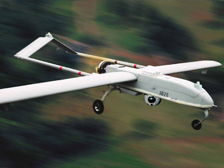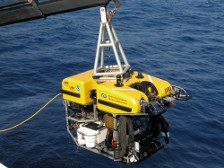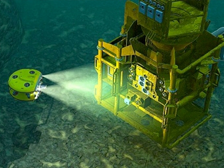
Plan-Based Policy-Learning for Surveillance Problems (M. Fox, D. Long, A. Coles, and S. Bernardini)
Friday, 01 June 2012The group has successfully secured ESPRC funds (EP/J012157/1, fEC value £458,818) to research the use of planning to underpin policy learning for surveillance problems. Surveillance problems give rise to many challenges including the management of uncertainty in an unpredictable environment, the management of restricted resources and the communication of commitments and requests between multiple heterogeneous agent 'observers'. At the heart of surveillance problems lies the need to plan complex sequences of behaviour that achieve surveillance goals. These goals are typically expressed in terms of gathering as much information as possible given constraints, and communicating findings to a human operator.
Read more

Sustained Autonomy through Coupled Plan-based Control and World Modelling with Uncertainty
Thursday, 01 March 2012 Sustained autonomous behaviour requires a system that is robust to uncertainty, both at the low level of interactions between actuators and sensors and its environment, but also at the intermediate level of sensory perception and interpretation, action dispatch and execution monitoring and, at the highest level of planning, action selection, plan modification and world modelling. In this project (EPSRC Project EP/J012211/1, fEC £237,002) our goal is to build and demonstrate a robust approach to sustained autonomy, coupling plan-based control to the construction of world models under constraints on resources and under uncertainty. This project is in co-operation with researchers from Heriot-Watt University (EPSRC Project EP/J012432/1) and the University of Birmingham (EPSRC Project EP/J012548/1).Read more

PANDORA: Persistent Autonomy through Learning, Adaptation, Observation and Re-Planning
Wednesday, 01 February 2012 PANDORA is a three-year EU-funded FP7 project (€3,680,000; to King's, £354,230) that will develop and evaluate new computational methods to make human-built robots Persistently Autonomous, significantly reducing the frequency of assistance requests. The key to this is an ability to recognise failure and respond to it, at all levels of abstraction and time constant. Following the Deep Water Horizon oilfield disaster in the Gulf of Mexico in 2010, contractors are developing hover capable autonomous underwater vehicles (AUVs) for subsea inspection and intervention. PANDORA’s key goal will be to make such vehicles more Persistently Autonomous.Read more

The Autonomic Power System
Saturday, 01 October 2011 Maria Fox and Derek Long are co-investigators on the EPSRC Autonomic Power System Project (EP/I031650/1, fEC value £3.4m). This project focuses on the electricity network of 2050. In the move to a decarbonised energy network the heat and transport sectors will be fully integrated into the electricity system. Therefore, the grand challenge in energy networks is to deliver the fundamental changes in the electrical power system that will support this transition, without being constrained by the current infrastructure, operational rules, market structure, regulations, and design guidelines.Read more